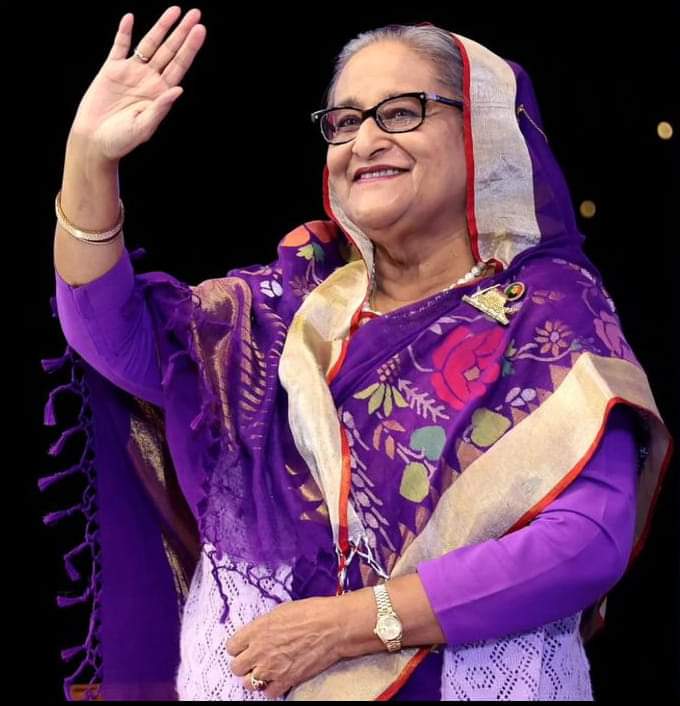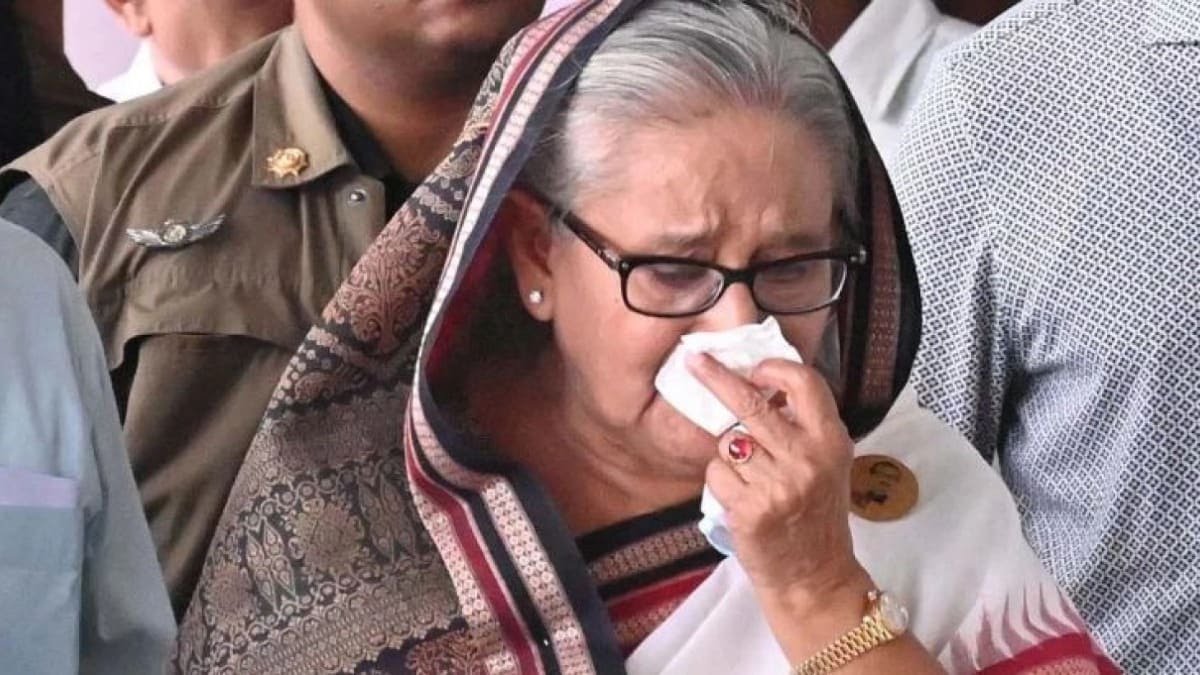BANGLADESH Prime Minister Sheikh Hasina has resigned from her post and departed from Dhaka amid violent protests, news agency AFP quoted a source as saying. She is reportedly travelling to India.
“She and her sister have left Ganabhaban (the Prime Minister’s official residence) for a safer place,” the source told AFP.
She departed from Bangabhaban at around 2:30 pm on Monday on a military helicopter, accompanied by her younger sister, Sheikh Rehana for a “safer place.”, ANI reported.
Meanwhile, the Bangladesh Army has given an ultimatum of 45 minutes to Prime Minister Sheikh Hasina,45, to resign from her post.
Last month, at least 150 people were killed and thousands injured in violence touched off by student groups protesting against reserved quotas in government jobs.
The ‘Students Against Discrimination’ group, which was at the forefront of last month’s job quota protests, was leading the latest demonstrations.
The protests to reform the quota system paused after the Supreme Court scrapped most quotas on 21 July Protesters, however, returned last week demanding a public apology from Hasina for the violence, restoration of internet connections, reopening of college and university campuses and release of those arrested.

By the weekend, the demonstrations spiralled into a campaign seeking Hasina’s ouster as demonstrators demanded justice for people killed last month.
The students’ group called for a nationwide non-cooperation movement starting Sunday with a single-point agenda – Hasina must resign.
The protesters blame Hasina’s government for the violence during the protests in July. Hasina’s critics and rights groups have accused her government of using excessive force against protesters, a charge the government denies.
Hasina, 76, and her government initially said students were not involved in the violence during the quota protests and blamed the Islamic party, Jamaat-e-Islami, and the main opposition, Bangladesh Nationalist Party (BNP), for the clashes and arson.
But after violence erupted again on Sunday, Hasina said that “those who are carrying out violence are not students but terrorists who are out to destabilise the nation”.
The student group has declined Hasina’s offer for talks to resolve the crisis.
Demonstrations started at university campuses in June after the High Court reinstated a quota system for government jobs, overturning a 2018 decision by Hasina’s government to scrap it.
The Supreme Court suspended the High Court order after the government’s appeal and then dismissed the lower court order last month, directing that 93% of jobs should be open to candidates on merit.
Experts also attribute the current unrest in Bangladesh to stagnant job growth in the private sector, making public sector jobs, with their accompanying regular wage hikes and privileges, very attractive.
The quotas sparked anger among students grappling with high youth unemployment, as nearly 32 million young people are out of work or education in a population of 170 million.
The flagging economy, once among the world’s fastest-growing on the back of the country’s booming garments sector, has stagnated. Inflation hovers around 10% per annum and dollar reserves are shrinking.
Eighteen-Eleven Media


